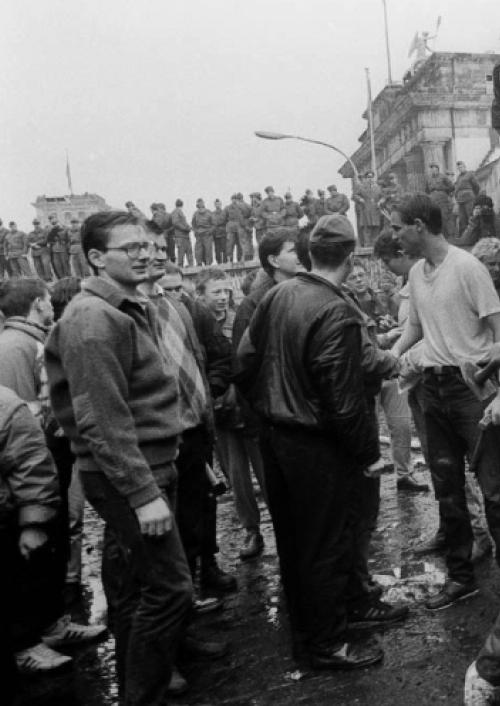Pen Pal
A DAY OF CHANGE Words Jonas Althuis
Based on real events.
Mia awoke in a cold sweat. A bad dream, she thought to herself, struggling to remember its contents. She felt a cold breeze on her skin, coming in through her open bedroom window. It was still dark outside. Wondering what the time was, she rolled over to her left side and tried to go back to sleep, but sleep did not come. She thought of her mother, who she had not seen for four years. Mia wondered if her mother still looked the same as she remembered her. 24
Unable to return to sleep, Mia put on her clothes and walked silently to the kitchen. The clock on the kitchen wall told her it was almost eight in the morning. She started heating up some water to make coffee as she heard her father start to get out of bed in the other room. It had been long since their apartment on the Auguststraße had felt as home. These days it felt desolate and empty, the furniture aged quickly by the lack of cleaning and maintenance. Looking at the kitchen table, Mia remembered how her mother would pick flowers, putting them into glasses around the house to liven it up. Her mother had been taken by the police for attempting to flee from East Berlin to the West where she had family. Though her father worked in the government, he had been powerless to help her. Mia still worried about her every day, but knew there was little she could do. “Good morning,” came her father’s voice from the
< Image: National Geographic Society (ngenespanol.com)
dark hallway. The light flickered on and illuminated her father’s silhouette, who walked into the bathroom. Mia had lived in the apartment her entire life, something of a privilege, as many of her friends and their families had been forced to move throughout the years. Her father’s position at the foreign office had secured her parents this apartment many years ago, before Mia was born. Fifteen minutes later, they were eating in silence at the kitchen table. Father didn’t talk about his work much, but Mia could easily tell when he was concerned about something, often as that was. “It’s all changing”, he said, trying to stifle a tone of elation in his voice. “First Poland, at the start of this year, Hungary after that, then the Baltics”, he paused. “And the demonstrations in Leipzig of course… perhaps finally,” he stopped abruptly, clearing his throat. It was her father’s job to be well informed about what was happening in the countries of the Soviet bloc, though he was strictly forbidden from talking about this outside of work. Mia had watched the protests in Leipzig a month earlier on the television and vividly remembered how police had responded violently, arresting thousands. “Please be careful today Mia,” he said as he got up and put his plate on the kitchen counter. Mia knew that her father shared her mother’s dream of living a free life in the west, though he didn’t like talking about it. Ever since mother had been taken, her father seemed to be paralyzed by fear, fear of losing his job, being accused of treason and put in prison. When her father had left for work, Mia got ready to

